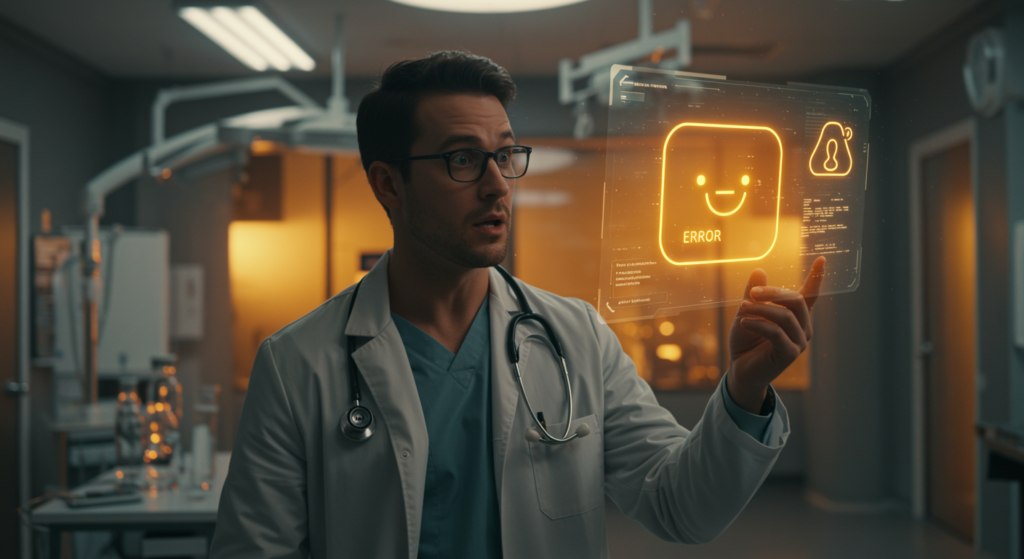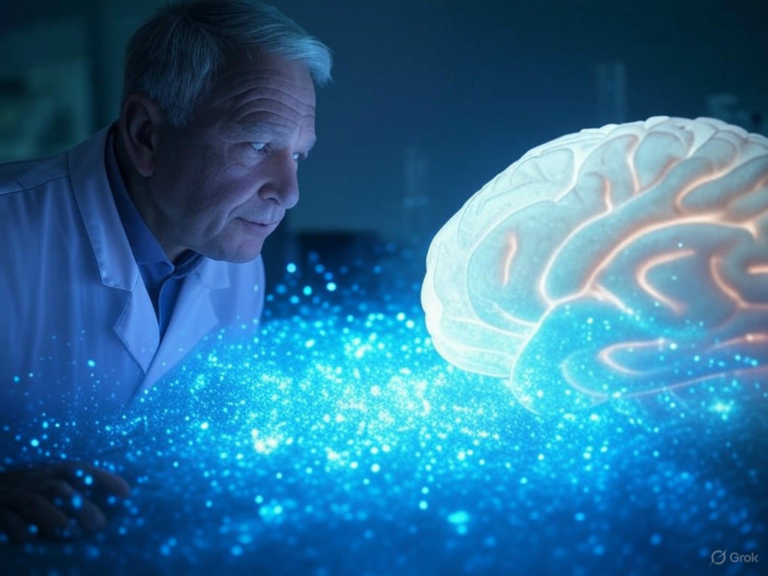
AI Medical Mistakes: Who Takes the Blame in Healthcare?
The Double-Edged Sword of AI in Medicine
Have you ever wondered how a technology meant to save lives could sometimes lead to errors? Artificial intelligence, or AI, is revolutionizing healthcare with faster diagnoses and smarter predictions, but it’s also introducing AI medical mistakes that raise serious questions about responsibility. While AI promises to ease the burden on doctors and improve outcomes, these errors can put patients at risk, making it essential to pinpoint accountability before things go wrong.
AI in Healthcare: Balancing Innovation and Risks
AI tools are everywhere in medicine today, from scanning X-rays for hidden issues to predicting which patients might need urgent care. This technology processes vast amounts of data quickly, often spotting patterns that humans might miss, which can lead to better, more efficient care. Yet, amid these advantages, we’re seeing an uptick in AI medical mistakes—errors that stem from flawed algorithms or incomplete data, potentially harming patients in ways we didn’t anticipate.
Think about it: What if an AI system misreads a critical scan, delaying vital treatment? Such scenarios highlight the peril of over-relying on machines, urging us to explore how these mistakes happen and who’s truly accountable.
Typical AI Medical Mistakes in Clinical Practice
- Data Privacy Lapses: AI systems might expose sensitive patient info if security isn’t airtight, leading to breaches that erode trust.
- Bias in Algorithms: If training data is skewed, AI could favor certain demographics, resulting in unfair or inaccurate recommendations that amplify existing inequalities.
- Outdated Information: Relying on old datasets means AI might overlook new health trends, causing misdiagnoses that could have been prevented.
- Erroneous Forecasts: A wrong risk prediction from AI can steer doctors toward poor decisions, sometimes with severe consequences for patient health.
- Direct Harmful Outcomes: Imagine an AI suggesting the wrong drug dose—mistakes like this can lead to serious injuries, underscoring the real-world impact of these errors[1].
Unpacking Liability for AI Medical Mistakes
When an AI medical mistake occurs, the fallout can be complicated, involving a mix of human oversight and machine flaws. Is it the doctor’s call, the hospital’s policy, or the tech company’s design? This grey area is forcing healthcare to rethink liability, especially as AI becomes a standard tool in daily practice.
Experts agree that shared responsibility could be the key, but let’s break it down to see where the buck stops.
The Physician’s Role in Averting AI Medical Mistakes
Doctors are on the front lines, using AI to inform their choices, but they’re not always equipped to spot when it’s leading them astray. This puts immense pressure on them—is it wise to follow an AI suggestion or trust their instincts? In many cases, the opaque nature of AI makes it tough to question, potentially turning a helpful tool into a source of AI medical mistakes.
To counter this, physicians need better training to interpret AI outputs critically. Have you considered how empowering doctors with this knowledge could cut down on errors and boost confidence?
How Hospitals Share the Blame for AI Errors
Hospitals often introduce AI systems into their workflows, but if they’re not set up right, AI medical mistakes can slip through. Poor training for staff or mismatched tech integration might leave room for failures that the institution could have prevented.
Actionable tip: Hospitals should conduct regular audits and provide ongoing education to minimize these risks, ensuring AI enhances rather than hinders care.
AI Developers and Their Accountability in Mistakes
The creators of AI tech design the algorithms, yet holding them responsible for AI medical mistakes is still murky. They’re pushing for better monitoring after launch, but without solid laws, the onus often shifts to users.
A relatable example: If an AI app fails due to poor data handling, is the developer at fault, or should the hospital have tested it more? This debate highlights the need for clearer guidelines to protect everyone involved.
A Real-Life Look at an AI Medical Mistake
Picture a busy ER where an AI tool reviews lab results and clears a patient for discharge, ignoring key family history details. Later, that patient faces a crisis that might have been avoided—what caused this AI medical mistake? Was it the doctor’s reliance on the system, the hospital’s oversight, or the developer’s oversight?
This scenario isn’t hypothetical; it’s drawn from real reports, showing how these errors can cascade and affect lives[2]. It’s a wake-up call for better safeguards.
Obstacles to Transparency and Fixing AI Medical Mistakes
One major issue with AI is its “black box” nature—decisions happen behind the scenes, making it hard to trace AI medical mistakes. Add in biases from training data, and you have a recipe for repeated errors that disproportionately impact vulnerable groups.
Incomplete regulations only compound the problem, leaving providers in limbo about their duties.
The Strain of AI Medical Mistakes on Doctors
Far from reducing workload, AI can add stress as doctors juggle their expertise with machine advice, potentially leading to burnout and more AI medical mistakes. If they’re not supported, this pressure might cause them to overlook red flags.
Strategies to help: Focus on team-based learning, offer AI-specific training, and create clear guidelines for when to question AI inputs. These steps can make a real difference in daily practice.
Prioritizing Patient Safety Amid AI Medical Mistakes
Patient well-being must come first, even as AI drives innovation. While it excels at some tasks, its limitations can lead to miscommunications or errors if not managed well.
For instance, studies show AI might outperform humans in spotting anomalies, but without clear explanations, it risks creating confusion that spirals into AI medical mistakes[3].
Breaking Down Accountability for AI Errors
| Key Player | Responsibilities | Main Challenges |
|---|---|---|
| Physicians | Making final calls and weaving AI into treatment plans | Uncertainty about trusting AI and managing fatigue |
| Hospitals | Overseeing AI adoption and training teams | Navigating legal risks and ensuring system reliability |
| AI Developers | Building and refining algorithms for accuracy | Dealing with hidden processes and bias issues |
Future Steps to Tackle AI Medical Mistakes
We’re seeing promising moves to address these issues, like crafting stricter AI rules and improving ongoing checks. Collaboration between doctors, hospitals, and tech firms could pave the way for safer systems.
By boosting transparency and working together, we might prevent AI medical mistakes from escalating. What do you think—could these changes transform healthcare for the better?
Wrapping Up: A Shared Path Forward
AI holds incredible potential, but we can’t ignore the reality of AI medical mistakes. Moving forward, sharing the load among all parties ensures patients stay safe while we innovate.
If this topic resonates, I’d love to hear your thoughts in the comments below. Share your experiences or explore more on our site about AI in healthcare—let’s keep the conversation going.
Frequently Asked Questions
Can Patients Seek Legal Action for AI Medical Mistakes?
Yes, but proving negligence is key, whether it’s tied to doctor errors, hospital lapses, or AI flaws. As laws evolve, options for patients are becoming clearer[5].
Tips for Hospitals to Reduce AI Medical Mistakes
Start with thorough AI evaluations, staff training, and routine risk checks to integrate these tools safely.
Does AI Lower or Raise Medical Errors?
It can do both—reducing mistakes in some areas while introducing new ones if not handled properly. Continuous improvements are vital[1].
References
- [1] Common Healthcare AI Mistakes. PRS Global. https://prsglobal.com/blog/6-common-healthcare-ai-mistakes
- [2] Who’s at Fault When AI Fails in Health Care? Stanford HAI. https://hai.stanford.edu/news/whos-fault-when-ai-fails-health-care
- [3] NIH Findings on AI in Medical Decision-Making. NIH. https://www.nih.gov/news-events/news-releases/nih-findings-shed-light-risks-benefits-integrating-ai-into-medical-decision-making
- [4] AI and Diagnostic Errors. AHRQ PSNet. https://psnet.ahrq.gov/perspective/artificial-intelligence-and-diagnostic-errors
- [5] Who’s to Blame When AI Makes a Medical Error? McCombs School of Business. https://news.mccombs.utexas.edu/research/whos-to-blame-when-ai-makes-a-medical-error/
- [6] The Impact of Digital Platforms. Centre for Media Transition. https://www.accc.gov.au/system/files/ACCC+commissioned+report+-+The+impact+of+digital+platforms+on+news+and+journalistic+content,+Centre+for+Media+Transition+(2).pdf
- [7] AI and Patient Safety Video. YouTube. https://www.youtube.com/watch?v=KjFyhV1Lu3I
AI medical mistakes, healthcare liability, AI in healthcare, medical error accountability, patient safety risks, AI diagnostic errors, artificial intelligence healthcare, AI responsibility, clinical AI failures, AI ethics in medicine







